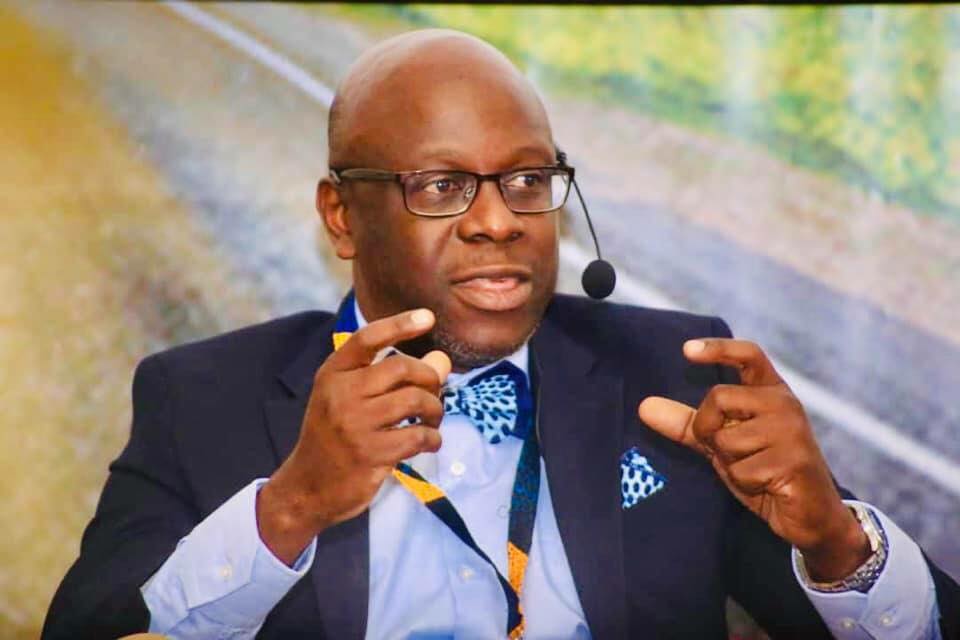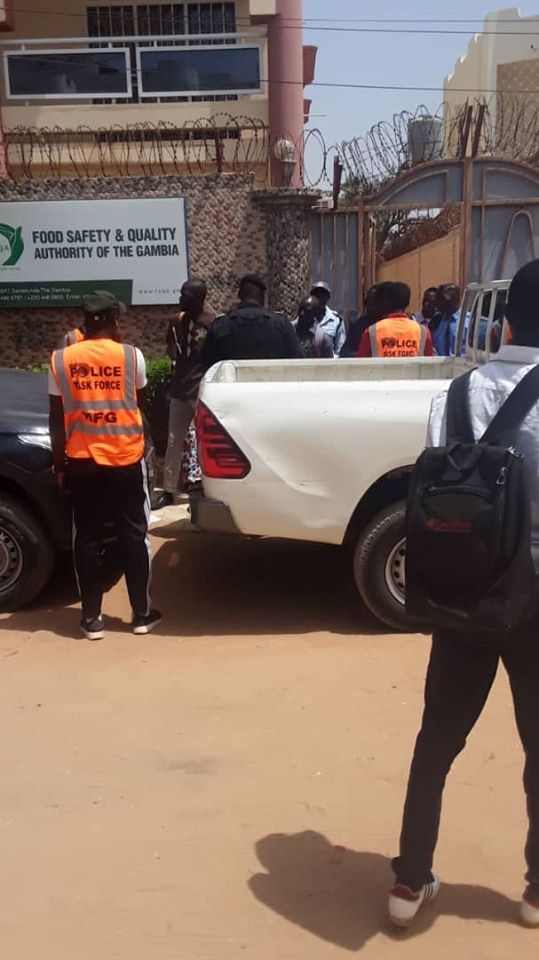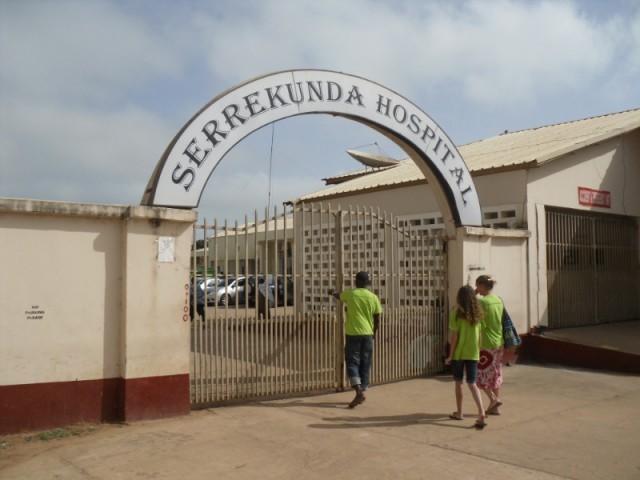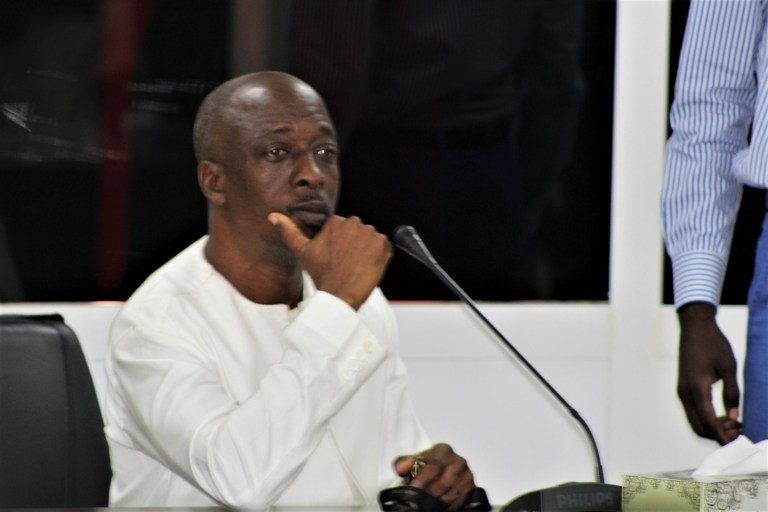The Gambia Bar Association has raised concern over President Adama Barrow’s declaration of State of Emergency as not consistent with the dictates of the Constitution.
The President on Tuesday extended the public state of emergency to seven days.
In a statement signed by Salieu Taal, President of Gambia Bar Association said: “Section 34(1) of the Constitution Of The Republic of The Gambia gives the President of the Republic the exclusive power to declare a State of Public Emergency but limits the exercise of this power under section 34(2) by prescribing that a State of Public Emergency shall lapse after seven (7) days or if the National Assembly is not in session after twenty-one (21) days. Under the aforementioned provision, the duration of the State of Public Emergency can only be extended if prior to its expiration, a resolution is tabled and approved by two–thirds of the National Assembly Members.
The Constitution therefore subjects the exercise of the Presidential Powers to declare a State of Public Emergency to National Assembly oversight and scrutiny by prescribing the duration of any such declaration made by the President. It is important to note that whilst the President of the Republic has the power to declare a State of Public Emergency in accordance with section 34, the Constitutional power to extend a State of Emergency is vested exclusively on the National Assembly. This is unequivocally provided under Section 34(2) of the Constitution.”
“Against this background, it is of our view that the Declaration of State of Public Emergency pursuant to Section 34(6) of the Constitution on the 10th June, 1st July and 7th July without recourse to the National Assembly is not consistent with the dictates of the Constitution.
The purported declarations by the President of the Republic are in essence extensions of the existing State of Public Emergency already declared on 18th March 2020 and 26th March 2020 respectively which were subsequently extended by the National Assembly.
It is our view that section 34(6) does not give the President the unfettered power or a carte blanche to declare a State of Public Emergency consecutively based on the same emergency (here the COVID-19) thereby circumventing parliamentary scrutiny and oversight, which is an essential check on the exercise of such emergency powers.
“The right and proper course of action was for the Executive to table a motion to extend the State of Emergency before the National Assembly. This is in line with the spirit and substance of the Constitution, which is the supreme law of this country.
Whilst we take note that wording and literal interpretation of section 34(6) purports to give the President the power to make further declarations under the provision, such a view is manifestly absurd in a democracy as it will in effect render the powers given to the National Assembly under section 34(2) nugatory or redundant to say the least.
Furthermore such interpretation is tantamount to giving the President unfettered powers to declare a State of Emergency without any oversight and check by the National Assembly. In other words, if the President under 34(6) can declare a State of Public Emergency ad finitum without reverting to the National Assembly then this begs the question “What is the role of the National Assembly as envisaged and provided for under Section 34 (2) of the Constitution? Does it mean that the President can keep on declaring SOPE in perpetuity?
It is our view that the declaration of a State of Public Emergency consecutively by the President on the 19th May 2020, 10th June 2020, 1st July 2020 and 7th July 2020 is in effect a usurpation of the powers granted to the National Assembly and is a dangerous precedent for our democracy,” the team of lawyers added. Within the context of our democracy, it is important to note that the Declaration of a State of Public Emergency has serious ramifications given that during this period the State is vested with sweeping emergency powers and can legitimately curtail the enjoyment of fundamental rights.
It is therefore imperative that such powers are exercised within the limits set by the constitution. Therefore, the purpose of the constitutional requirement under 34(2) is to ensure that the National Assembly checks or restrains the exercise of the power to declare a SOPE by the President.”
“The Gambia Bar Association acknowledges and recognises the Government’s duty to protect its citizens and all those who reside in The Gambia against the spread of the pandemic outbreak known as COVID-19. The fight against COVID-19 is a collective battle for all Gambians and requires cooperation and collaboration of all the stakeholders. However, in discharging this noble responsibility, we urge the Executive to do so in close collaboration with the National Assembly.
We trust in the spirit of the Constitution and our current democratic dispensation, the Executive will ensure that any further extension of the State of Public Emergency is tabled for discussion and approval of the National Assembly as envisaged under the Constitution.
We also urge the National Assembly in the discharge of its function as an oversight body of the Executive to be cognisant of their responsibility as servants of the people and be influenced by the dictates of conscience and the national interest in line with section 112 of the Constitution.
For the Gambia Our Homeland.”




